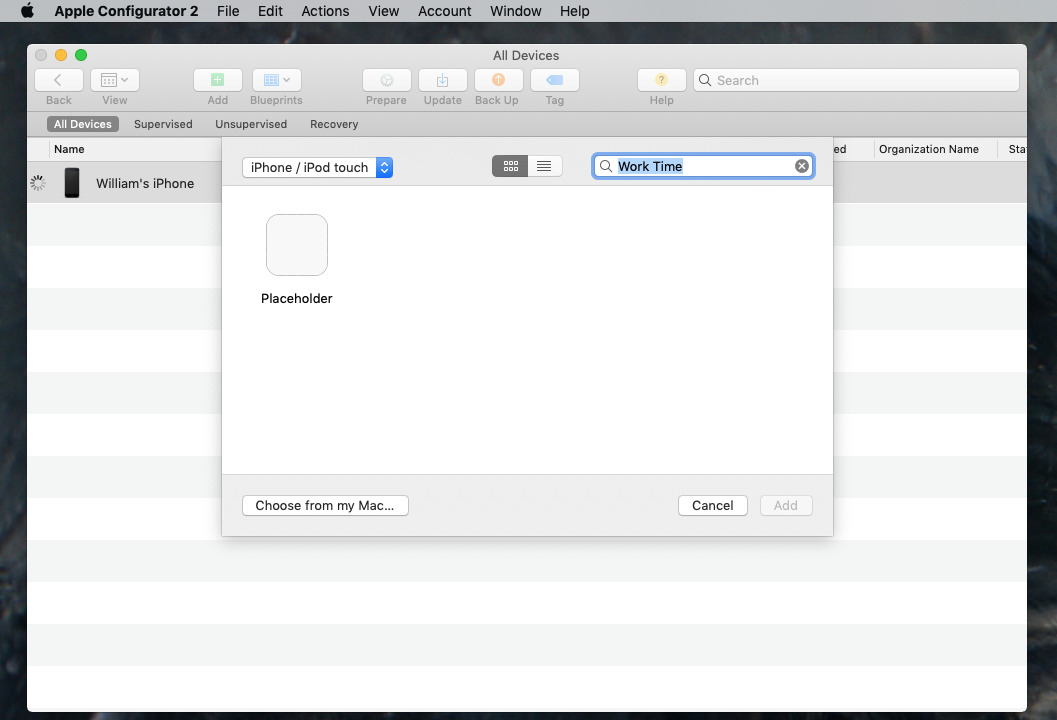
- Apple Configurator 2 - How do I download the app on Windows PC? If you want to download the software on your windows pc or mac, you could either first visit the Mac store or Microsoft AppStore and search for the app OR you can easily use any of the download links we provided above under the 'Download and Install' header section to download the application.
- Unfortunately, Apple Configurator only runs on a Mac. In addition, once a device is supervised by that specific Mac, if you one day decide to change to another Mac, it's not a trivial task to move the settings over. The cheapest way to run Apple Configurator would be with a Mac mini.
With the release of Apple's new M1 chipset Macs, it's possible to run iOS apps on your computer. There are a few ways to do this.
The simplest is to run apps that have been officially designated for use on macOS by their authors. Where this is the case, they'll be available in the App Store on macOS as usual. However, it is possible to download and run any iOS app on your M1-powered Mac.

To do so, you'll need the free Apple Configurator 2 app installed.
Connect your iOS device to your M1 Mac.
Run Apple Configurator 2, select your phone and click
Add→Appsin the menu bar.If Apple Configurator isn't signed into your Apple ID, you'll need to click 'Sign in' and provide your credentials.
Search for the app you want to download, before hitting 'Add'. This has to be an app that is already installed your iPhone.
If you want to choose an app that isn't currently on your phone, visit the App Store on your iOS device and hit 'Install' on the app in question before restarting this process.
A progress dialog will show whilst the app is being downloaded. When it's done, a warning will pop up, saying that the app is already installed on the phone. Leave the warning message on the screen.
Switch to Finder and hit
⌘ Cmd+⇧ Shift+Gto open the 'Go to folder' dialog, and paste this, before hitting⏎ Enter:~/Library/Group Containers/K36BKF7T3D.group.com.apple.configurator/Library/Caches/Assets/TemporaryItems/MobileAppsOpen the folders in the new window until you get to the IPA file. Double-click it to install it on your Mac, and it'll appear in your
Applicationsfolder.The iOS app won't run until you approve it to run on your system. Open Terminal on your Mac, and paste this command in, but don't hit the enter key:
sudo xattr -rd com.apple.quarantinePress the spacebar to add a space after that text, and then drag your app from the
Applicationsfolder onto the Terminal window. That'll add the app's path to the end of the line you pasted in.Hit the
⏎ Enterkey and type your password before hitting⏎ Enteragain.
You should now see the DFU logo on the Host Mac. Apple Configurator 2 Steps. The hard part is now over. Now we can restore macOS on the Target Mac. When you first open Apple Configurator 2 the screen will look like this. The current version of Mac OS is 10.4. Since you cannot have that installed on your computer the App Store will not let you have the current version of the Configurator. I am running 10.4 and I also have the Configurator, and it works fine but I have no way to test it on a prior version of Mac OS.
That's it — you'll now be able to run your app from Applications like any other app.
Apple Configurator 1 Download For Mac
If you run into any problems, or have tips to share, please drop us a note or leave a comment below.